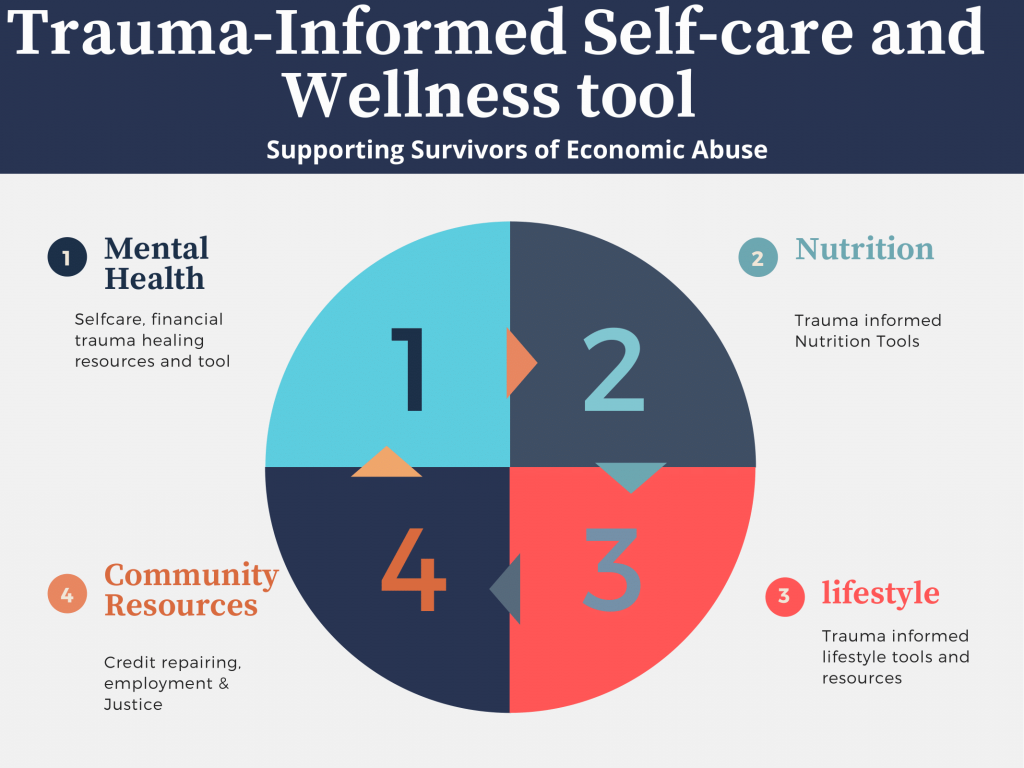MENTAL HEALTH AND FINANCIAL TRAUMA
TRAUMA INFORMED TOOLS
Mental Health
Economic Abuse has unique impacts on the mental health of victims. Studies showed that Post Traumatic Stress Disorder is 7 times higher in relationships where economic abuse has occurred and the strongest indicator of suicide attempts for women in abusive relationships. Taking care of your emotional well-being is as important as caring for your physical health. It is essential to maintain a healthy relationship with yourself. It’s a process that results in positive feelings and boosts self-confidence and self-esteem.
Our past projects
Target group: Economic Abuse Victims from Black Indigenous and People of Color community.
Project 1: Expert by Experience Women Support Group for BIPOC: Every week, we hosted webinars and Women’s Support Groups. Its goal was to bring survivors together who are going through or have gone through domestic Economic Abuse. This was an opportunity for people to share their personal experiences, feelings, and coping strategies to feel less alone, isolated, depressed, anxious, or tired.
Project 2: Group Counseling and Therapy ( Trauma of Money): The support peer circles was interactive forums, group counseling by psychotherapist, and one-on-one mentoring for women with moderate depression, anxiety, stress for Black Indigenous and People of Color.
The group offered additional tools on resilience, economic abuse, self-care, financial literacy, mastering credit basics, recovery, safety management, overcoming anxiety, depression, anger management, overcoming financial trauma, mastering credit basics, financial safety planning.
The session was facilitated in collaboration with Fabiola’s Addiction/Mental Health Awareness and Support Foundation, Federation Femmes Enfants Avenir Monde (FFEAM), and SMJ Magazine & Shelland House of Films.
The project was funded by the City of Ottawa.
If you are a social worker, psychotherapist, researcher, and financial counselor who wants to contribute to our efforts, please email us at info@ccfwe.org
Want to share your story? Please click here on how you get involved
NUTRITION, SELFCARE, HEALING STRATEGIES AND TRAUMA RECOVERY GUIDELINES
Self-care takes many forms, like physical, emotional, or spiritual activities. It helps with the short and long terms effects of trauma.
Engaging in activities that nurture the mind and body has excellent benefits. One of our many schemes is healing touch approaches for survivors that consistently lived damaging physical abuse.
We are developing survivor-informed self-care and nutrition guidelines. These guidelines are important because when a person lives through trauma, they experience physiological changes that can affect recovery. Our upcoming selfcare guidelines will support the healing process of survivors.



